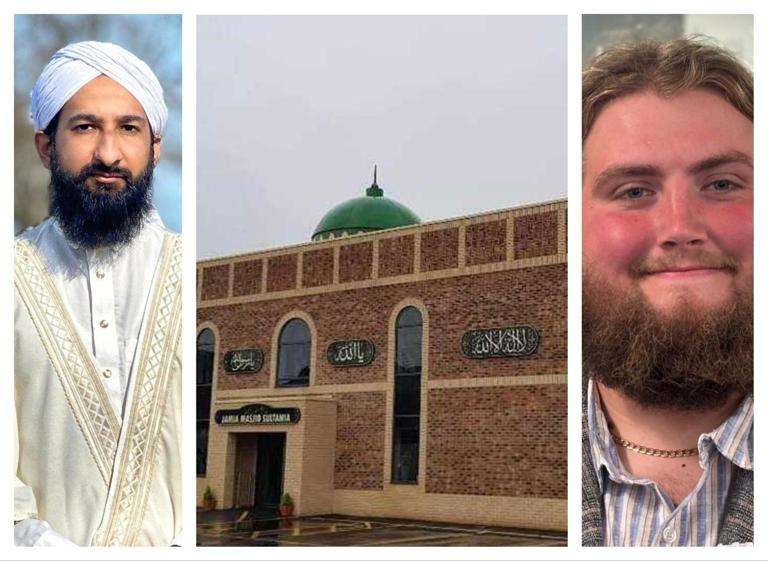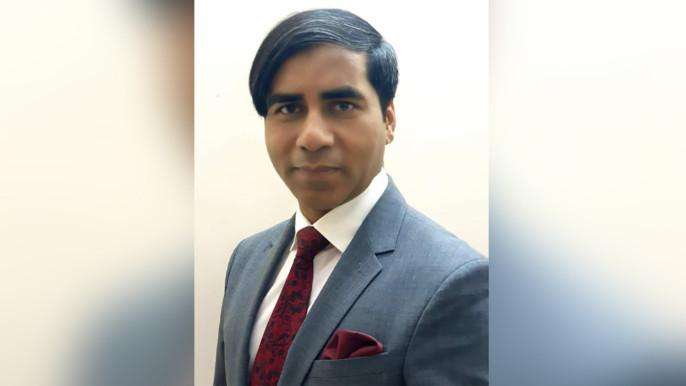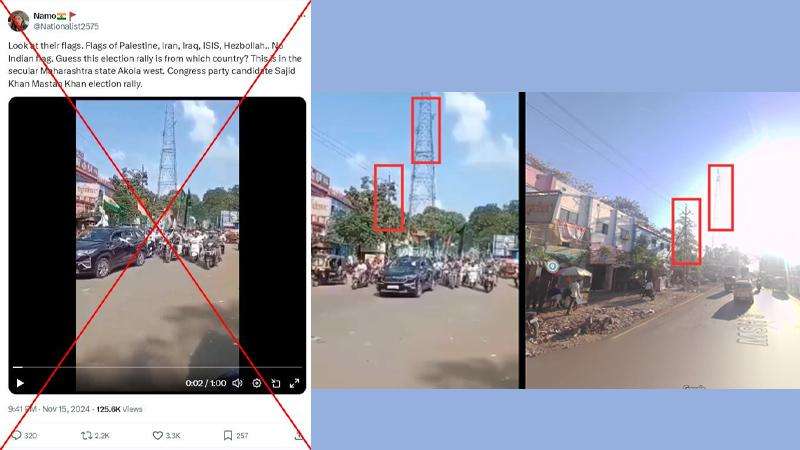Bangladesh and Türkiye have vibrant trade relations, with bilateral trade currently hovering around 1 billion US dollars. However, both nations aim to significantly uplift this figure, targeting a trade volume of 3 billion US dollars within the next five years, as repeatedly emphasized by both governments.
Bangladesh Ambassador to Türkiye Amanul Haq said this in an interview with The Dazzling Dawn, a London-based English daily, recently.
Ambassador-designate Amanul Haq is a career foreign service officer belonging to the 18th batch of Bangladesh Civil Service (BCS)-Foreign Affairs cadre. It should be Amanul Haq is a career foreign service officer belonging to the 18th batch of Bangladesh Civil Service (BCS)-Foreign Affairs cadre.
Before joining the Bangladesh mission in Ankara, he was the Chief of Protocol at the Ministry.
Joining the service in 1999, Haq has served the government in various capacities both at home and abroad.
He started his diplomatic career as Consul and Deputy Head of Mission at Bangladesh Consulate General in New York.
Later on, he joined the Organisation of Islamic Cooperation (OIC) Headquarters in Jeddah on secondment where, after a significant stint, he eventually rose to the position of Acting Director General of the Cabinet and Advisor to the Secretary General.
On return, he assumed the position of a Director General at the Ministry.
Haq obtained his Masters in International Relations from Dhaka University and had undergone higher studies and training in France, the Netherlands and Norway.
The rest part of the interview has been given below :
01. Bangladesh has a new interim government, headed by Nobel Laureate Professor Mohammed Yunus. How Turkey's government sees the relationship with Bangladesh government in the coming days? What are observations of the Turkey government and civil society over the previous regime of Sheikh Hasina?
As you may be aware, Bangladesh and Türkiye share a long-standing and multifaceted relationship rooted in mutual respect and shared aspirations. Following the formation of the interim government in Bangladesh, the Hon’ble Chief Advisor and the Hon’ble President of the Republic of Türkiye held a significant telephone conversation on 27 August 2024, discussing Türkiye’s potential assistance in Bangladesh’s reform initiatives across various sectors. Building on this dialogue, a high-level delegation from Türkiye recently visited Bangladesh to strategize and enhance bilateral cooperation. This visit marks a new chapter in our partnership, focusing on sustainable development, economic growth, and institutional reforms. We look forward to deepening this collaboration for the mutual benefit of our peoples, further solidifying our bond as trusted partners in regional and global progress.
02. Bangladesh-Turkey bilateral trade is hovering around some 1.00 billion US dollars. What is our target to reach bilateral trade within the next five years?
Bangladesh and Türkiye have vibrant trade relations, with bilateral trade currently hovering around 1 billion US dollars. However, both nations aim to significantly uplift this figure, targeting a trade volume of 3 billion US dollars within the next five years, as repeatedly emphasized by both governments.
Efforts are being intensified to overcome existing complexities and enhance bilateral trade. Currently, 15 to 20 Turkish companies operate in Bangladesh in sectors such as garments, textiles, chemicals, engineering, construction, and energy, with over 100 Turkish companies providing various services. The focus now is on expanding trade cooperation by engaging more companies from both countries to explore mutual benefits and increase trade volume.
The Bangladesh Embassy in Ankara has prioritized economic diplomacy, aiming to diversify the export basket. To facilitate this, we are actively engaged with key trade and regulatory bodies in Türkiye, including the Ministers of Trade, Presidents of the Ankara and Istanbul Chambers of Commerce, and the Foreign Economic Relations Board (DEIK). These discussions have yielded commitments for increased investments in Bangladesh and greater imports from our country.
03. The Russia-Ukraine war has caused a rise in the price of essential commodities in the world market. Consumers of poor and developing countries have become aware of this volatile market. How do you see the situation ?
Having lived in Turkey for the past two years, I have observed a significant increase in the prices of various commodities here. This is a global issue, making it challenging for all countries to manage. Boosting internal production and exploring alternative markets for the daily necessities that we currently import, could be a solution.
04. Foreign direct investment (FDI) flows to Bangladesh dropped to 3000 million US dollars in 2023. Do you see more Turkish investment in Bangladesh? How do Turkish businessmen evaluate the investment climate in Bangladesh?
Over the past year, I have had meetings with various high-ranking officials and business groups in Türkiye. I estimate that I participated in more than fifty meetings, which included calls on with the President, the Vice President, and the Speaker of the Parliament as well as discussion meetings with Deputy Ministers, Mayors, and Governors of major cities, as well as Ministers of Labour and Trade, the President of the Inter-Parliamentary Friendship Group, and the President of the Turkish Court of Accounts. I also met with nearly all the presidents of trade organizations.
During these calls on and meetings, I emphasized the opportunities for trade and investment in Bangladesh. I received assurances from my counterparts regarding their commitment to improving business relations and investment prospects. Importantly, the Fourth Foreign Office Consultation and the 6th Joint Economic Commission Meetings are set to take place in Dhaka soon. I believe that successfully convening these meetings will greatly enhance trade and investment opportunities between our countries.
05. Bangladesh will celebrate 54 years of independence in December 2024. Bangladesh has become a member of a mid-income country this year. How do you see the achievement of Bangladesh’s economic success in the last 53 years?
Bangladesh's journey since independence has been one of resilience and progress, with remarkable growth despite obstacles such as natural disasters and global uncertainty. We have made considerable progress in poverty reduction, human development, and economic growth, having achieved lower-middle-income status in 2015 and aiming for upper-middle-income status by 2031.
As we prepare for LDC graduation in 2026, we will encounter several challenges, including severe preference erosion. However, some nations have pledged to continue preferential duty-free market access for another three years; therefore, the export scenario to other markets will change immediately after graduation. We can meet these challenges by diversifying our exports, strengthening infrastructure, developing human resources, and addressing financial and environmental risks. Bangladesh can maintain its long-term prosperity and resilience by creating a competitive economic climate, improving institutions, and adopting sustainable development.
06. What is the number of Bangladeshis living in Turkey? How does the Turkish government evaluate their contributions to the Turkish economy?
In Türkiye, there are approximately three thousand Bangladeshi expatriates. As almost 80 percent of them are students, the number of expatriates goes up or down all year round. According to different sources, in recent times, an increasing number of Bangladeshi entrepreneurs and businesspeople are showing interest in relocating to Türkiye, attracted by its dynamic economy and growing investment opportunities. The Bangladeshi communities are well accepted by both the Turkish government and its people as they call Bangladeshis their brother.
07. Turkey has a major success in the travel and tourism sector. How Dhaka and Ankara work together in promoting the tourism sector in Bangladesh?
To attract tourists from Türkiye, we promote our cities, cultures, histories, and infrastructures in Ankara by participating in various exhibitions and organizing year-round programs at the Embassy. As enthusiastic readers may be aware that Konya is Turkiye’s major tourist city, and is the site of the shrine of Mawlana Rumi. Every year, hundreds of thousands of his followers visit the city. We have signed a sister city protocol between Konya and Sylhet to enhance communication between the two cities and raise awareness of Sylhet among tourists because our Sylhet is no less beautiful than Konya. In my recent visits to some other cities of Turkiye, mentionably, Gaziantep, Şanlıurfa, and Mersin, the discussion of pairing up more appropriate cities from Bangladesh with those cities were taken place. Last year, we organized the Lily Flower Festival in Beyshehir of Türkiye with the cooperation of its Mayor to promote our national flower Shapla, and showcase the natural beauty of our flower to the residents of Konya emphasizing that it grows naturally in Bangladesh making our country a heavenly beauty.
08. Turkey is a member of North Atlantic Treaty Organization (NATO). How Turkey and Bangladesh in defense cooperation?
The foundation of Bangladesh-Turkiye’s bilateral relations has been formed based on Military cooperation. Bangladesh is Türkiye's major importer of defense equipment. Bangladesh has received modern defensive technologies from Türkiye, including the Bayraktar TB2 drones, TRG-300 Kaplan missile systems, and Tiger MLRS artillery. These acquisitions represent our confidence in Türkiye's defense sector. As Türkiye produces defense equipment that meets NATO standards, this has instilled strong confidence in Turkish equipment in Bangladesh.
09. It is heard that a number of Bangladeshis got Turkish citizens under the investment category. what is the number of Bangladeshis who got citizenship under the investment category?
Türkiye government is indeed giving the opportunity of getting its citizenship from investment in real estate or depositing in Turkish banks. Although some Bangladeshis may have obtained citizenship through the investment category, it is difficult to assert the exact number as they don’t register with the Embassy and the Turkish government does not disclose detailed nationality-specific statistics for its Citizenship by Investment program.
10. What other issues that you like to share with the daily
Thank you for contacting the Embassy of Bangladesh in Ankara. I would like to address the anti-discrimination movement that took place in July and August and extend deep condolences to the martyrs. Extend my deepest sympathies to the bereaved families, and wish for a swift recovery for the injured. The Embassy of Bangladesh in Ankara is also working toward realizing the dreams expressed by our students and the common people.

_8.jpg)

_7.jpg)




.svg)


